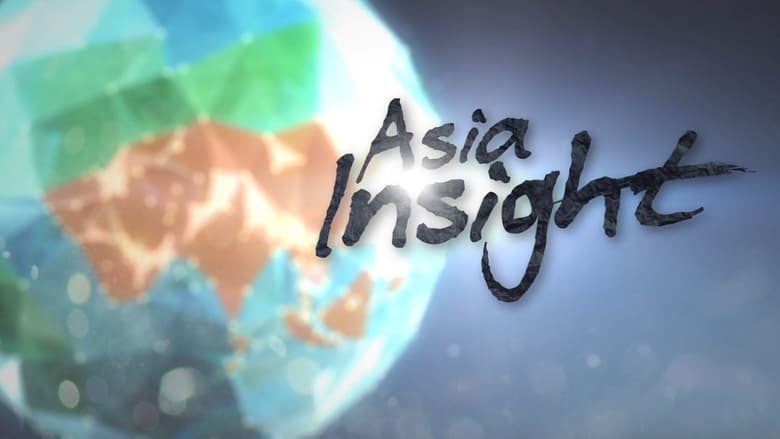
Trailer
Synopsis
An in-depth portrait of Asia today, covering its dynamism as a center of growth as well as its traditions tossed around by the advance of globalization.
Episode 32 : Entrepreneurs of the Massive Housing Complex: Guizhou, China
December. 25,2020

The inland province of Guizhou had once been ranked among China's most impoverished, but change was shown by completion of a huge housing complex there 5 years ago. Now young entrepreneurs are staking their dreams on the region, drawn by the affordable housing costs and convenient infrastructure. From internet business CEOs to school owners, a wave of creative young men and women undeterred by the pandemic are seeking out new opportunities in Guizhou.
Episode 31 : The Unsung Heroes Fighting the Coronavirus: Thailand
December. 18,2020

Thailand was the first country outside of China to detect cases of COVID-19. However, with less than 4,000 infections and 60 deaths as of the end of November, the measures they have taken are drawing global attention. The unsung heroes behind the scenes are the 1.2 million Health Volunteers who work closely with the local community, doing everything from distributing masks to monitoring those who may be infected. We find out who they are and why they are so devoted to defeating the virus.
Episode 30 : Echoes of Musical Tradition: Mongolia
November. 27,2020

The Altai mountains in western Mongolia are home to many folk music traditions. Although traditional Mongolian arts have been swept away by modernization in many regions, this area has carefully maintained them as part of a nomadic lifestyle. From the world-famous Khoomei throat singing to the ikhel, from which all Mongolian string instruments are said to have evolved, this region is a historic treasure trove of the musical arts. 12 years ago, a 1,300-year-old wooden instrument was discovered in a cave burial in the region, with markings that prove the long association between local nomads and music. Discover how locals are keeping ancient arts alive today and continuing to worship nature through song and music.
Episode 29 : Spreading Kindness: Online Barter in the Philippines
November. 13,2020

Online bartering has become a massive trend in the Philippines. Many people have lost work because of the novel coronavirus pandemic, and exchanging goods is a way to procure basic necessities. The movement has begun with Bacolod-based lawyer Jocelle Batapa Sigue, who started an online barter community with just 10 members back in May 2020. She sets rules, such as no cash transactions, and in-person exchanges only, as a way to promote a system of mutual assistance. Today over a million people across the Philippines are bartering online. Explore how Filipinos are using this new system to make it through the pandemic.
Episode 28 : The "Made in Hong Kong" Dilemma
October. 30,2020

Manufacturers in Hong Kong cherish their "Made in Hong Kong" brand, viewing the label as a mark of quality when delivering their products to the world. But due to countermeasures imposed by the United States towards strengthening Chinese control over Hong Kong, the local businesses will be required to mark their exports as "Made in China." Any competitive advantage they might have had is eliminated as they are caught between the growing tensions of 2 nations.
Episode 27 : Thailand's Struggling Inbound Tourism
October. 16,2020

Thailand had relied heavily on foreign tourists, but the coronavirus forced it to close its borders in April, costing many their livelihoods. Some sought out new business opportunities, or continued working for a fraction of their former incomes. Others adjust their workstyle to focus on local customers. Among the compromised tourism industry, a multitude of people now seek new solutions.
Episode 26 : Dreaming of a Medal: Mongolia
October. 09,2020

Mongolian marathon runner Munkhzaya Bayartsogt (26) is a rising star. She broke national records with her very first race at age 19 and has broken 9 more records and won countless international contests since. But the current pandemic has left her in dire straits, as funding has dropped to just 20% of its usual amount. She can't find anywhere to train, and she's even having trouble feeding herself, leading to malnutrition that is affecting her athletic condition. Yet with her family behind her, Munkhzaya continues to run.
Episode 25 : Making Art from a Pandemic: Wuhan, China
September. 25,2020

Wuhan was the epicenter of the novel coronavirus. Now, it's home to a new art exhibition depicting the fear of infection and gratitude to those who kept the city safe. Behind the exhibition is young Wuhan artist Yang Qian. When lockdown began on January 23, 2020, she laid down her brushes and spent around 4 months delivering supplies to hospitals and care homes as a volunteer. Aware that she could become infected at any moment, she filmed her daily life and posted on social media. Follow the tireless volunteer work of this artist during Wuhan's long lockdown.
Episode 24 : Deliveries Among COVID-19 in South Korea
September. 04,2020

COVID-19 is forcing many South Koreans to shop online, increasing the number of online purchases by 30% in 2020. However, the delivery drivers who bear this burden lack job security or basic labor rights. Drivers are responsible for providing their own vehicles, but pay for each delivery is meager, pushing many to severe overwork in order to replace the income lost to the pandemic. This episode depicts the harsh work environment these drivers suffer.
Episode 23 : Vietnam: A Mega-Hospital in Lockdown
August. 28,2020

Vietnam is considered a success case in the fight against COVID-19, having kept infections to a minimum. But in late March, the country's biggest medical facility saw a large cluster of cases, and in an unprecedented move, Bach Mai Hospital was put into total lockdown. 700 severely ill patients and around 2,000 medical staff stayed on site, with all movement closely monitored. They tell their extraordinary stories from the 15-day lockdown of Vietnam's largest hospital.
Episode 22 : Wuhan: An App to Survive Post-Corona
August. 21,2020

Several months after the lockdown ended in April 2020, store owners in Wuhan, China turn to a flea market app in order to pay living costs among an economy fundamentally changed by the coronavirus. Many sell their goods at a major loss, others offer unusual services, or go so far as to sell their pets in order to somehow get by. Though the government has reported an improved GDP, the outlook among residents of Wuhan remains a bleak one.
Episode 21 : Guangzhou's Apparel Industry Facing COVID-19
August. 07,2020

The coronavirus pandemic is damaging the apparel industry in Guangzhou, China, as people and goods are barred entry. With orders from overseas clients almost completely eliminated, lack of demand affects people in every position: Jobless workers fight over cheap day labor, factory owners can barely turn a profit and inns struggle to stay afloat among the economic shockwave caused by the virus.
Episode 20 : Protecting the Elderly from COVID-19: South Korea
July. 31,2020

South Korea has succeeded in minimizing infections during the pandemic while also paying great attention to mental healthcare for the elderly. The country has the highest suicide rates of any developed nation - particularly among old people. The pandemic has made basic support systems impossible to maintain and many fear another rise in deaths. Meet the people finding new ways to help, and discover how monitoring systems and potted plants are being used to support the many elderly people who live alone in Seoul.
Episode 19 : North Borneo's Isolated Stateless
July. 24,2020

In regions of Malaysian North Borneo such as the city of Kota Kinabalu, which is otherwise known as a classy tourist destination, illegal slums dot the map. Cobbled together above the waters, the dwellings are home to the "stateless," people who due to their lack of identifying documents effectively belong to no country. Many fled insurgence in the Philippines, and have lived in North Borneo for decades, relying on the support of NGOs to feed their families. Now, with the government enacting a lockdown in order to contain the coronavirus, their very survival is at risk.
Episode 18 : Battling COVID-19 (3-Part Series): Pandemic and Culture
July. 17,2020

Claiming tens of thousands of lives and infecting millions worldwide, the damage caused by the current pandemic is widespread and seemingly never-ending. Most countries have experienced lockdowns and the closing of borders, and the economic impact of COVID-19 on parts of East Asia and South Asia, in particular, is expected to be severe. In this episode of Asia Insight, we catch up with artists previously interviewed in Vietnam and South Korea where swift action has kept infection low. How has the pandemic affected them and what are their unique ideas and strategies for the future?
Episode 17 : Battling COVID-19 (3-Part Series): Pandemic and Business
July. 10,2020

The coronavirus pandemic has infected over ten million and killed hundreds of thousands around the world, and a true solution remains out of sight. Most countries have banned international travel and taken massive hits to their economies. Many in Asia have found their jobs and income cut off. This time on Asia Insight, we revisit several business owners we met previously in China, Mongolia, Taiwan and Cambodia to see how the pandemic has affected them. Explore their unique visions and strategies for the future.
Episode 16 : Battling COVID-19 (3-Part Series): Pandemic and Poverty
July. 03,2020

Claiming tens of thousands of lives and infecting millions of people worldwide, the damage caused by the current novel coronavirus pandemic is widespread and seemingly never-ending. Most countries have experienced lockdowns and the closing of borders, and the economic impact of COVID-19 on parts of East Asia and South Asia, in particular, is expected to be severe. In this episode of Asia Insight, we catch up with previous interviewees in the Philippines, Mongolia and China to find out how they are faring and gauge their hopes and fears for the future.
Episode 15 : Sketching a Better Myanmar through Satire
June. 12,2020

Winphe is a popular satirical cartoonist in Yangon, Myanmar. He's drawn over 1,500 works exploring political and everyday issues from the perspective of ordinary citizens. During nearly 50 years of military rule, newspapers were censored and the work of satirists was suppressed. The censorship ended with the government's 2011 step towards democracy, but some cartoonists say that not everything can be freely criticized, with arrests still being made. Explore Myanmar today through the work of Winphe and his satirist colleagues.
Episode 14 : Coronavirus Crisis: Answering the Call - Thai Monks on the Frontline
June. 05,2020

COVID-19 rages around the world and Thailand is no exception. In recent weeks, infections have dropped below 10 new cases on most days, but people continue to lose jobs. An estimated 10 million will be unemployed if economic restrictions continue. To support the needy, monks at a temple near Bangkok are running a major food distribution program. This documentary follows their activities and the people they are helping, including the family of a taxi driver put out of work by the pandemic.
Episode 13 : Businesses Struggling with COVID-19 in Shenzhen
May. 29,2020

Shenzhen, in Guangdong Province, is the center of China's IT industry. With a number of novel coronavirus infectees second only to Hubei, its businesses endured a lockdown that was lifted at the end of February. One businessman who operates amusement parks in the province faces a harsh struggle for financial survival. Unable to liquidate his assets and grappling with cancellations from investors, his business is just one of many in Shenzhen that have been destabilized by the virus.
Episode 12 : Documenting Home: Myanmar
May. 08,2020

The Yangon Film School, established in 2005, pioneered film education in Myanmar. Its students have made over 200 documentaries, winning a number of awards at domestic and international film festivals. Fees for the three-year course are covered by the school itself, and 12 students are accepted for each grade, half of them ethnic minorities. Under the guidance of 10 teachers from Myanmar and abroad, the students use film to tell stories of street dancers in Yangon, anonymous democracy fighters and conflict-ridden border regions. Following Myanmar's shift towards democracy in 2011, these young filmmakers are on the ground documenting their country's transformation.
Episode 11 : South Korea's Elderly Box Foragers
April. 24,2020

Although South Korea completed its national pension system in 1999, late enrollment and other issues caused many seniors to be left without adequate financial aid. Now, some of those elderly men and women have resorted to gathering recyclable cardboard just to put food on the table. With cardboard prices dropping, a full day of foraging may not even provide an hour's pay at minimum wage, and the senior citizens are faced with a bleak future in their twilight years.
Episode 10 : Beijing's Room of Rage
April. 10,2020

In a district of Beijing frequented by young people, a new kind of business opened its doors: At the Smash Room, customers pay for the right to destroy bottles, mannequins, furniture, or any number of other objects. But for many, the fleeting moment of destruction is no game: It's a way of dealing with personal problems that have no outlet in modern society.
Episode 9 : Japan and the Philippines: Specified Skilled Worker System Year One
March. 27,2020

In April of 2019, Japan introduced a new visa status, the Specified Skilled Worker, intended to encourage foreign laborers to boost Japan's dwindling workforce. In theory, the system appears to be a fine proposal both for young Filipinos eager to send money home, and Japanese industries hoping for new workers. In practice, however, bureaucratic complications between the 2 nations mean that making use of the system isn't as easy as it should be.
Episode 8 : A Mixed Blessing: A World Heritage City in Uzbekistan
March. 20,2020

The city of Samarkand, Uzbekistan, has over 2,500 years of history. Today, Samarkand is a UNESCO World Heritage Site, thanks to its status as a "cultural crossroads." Beginning in 2018, a national tourism policy brought about a sharp rise in foreign visitors, sparking widespread development and infrastructural changes. Locals are hopeful about the economic potential of increased tourism, but worried about the rapid transformation of their city, while UNESCO has asked the government to reconsider its plans. Explore the challenges Samarkand faces as it navigates a tourism boom.
Episode 7 : A Second Chance in Bangkok's Slums
March. 06,2020

In the shadow of Thailand's rapid economic growth is the district of Klong Toey, one of nearly 2,000 slums in Bangkok. Klong Toey is home to more than 80,000 residents, whose average income is half that of the typical Bangkok household. Some make their living as resellers, supporting their families by purchasing from local shops and selling elsewhere. While they manage to make ends meet, improving their lives enough to transcend this daily cycle is a daunting task.
Episode 6 : Living Among the Two Koreas
February. 21,2020

Each year, a handful of North Korean citizens leave their past lives behind in hopes of gaining freedom as defectors to South Korea. Until recently, social foundations have existed to support the transition of these defectors into a new society. But under the Moon administration, such organizations have seen their funding slashed, and the government has even willingly repatriated some defectors to almost certain death. Without sufficient financial or social support, North Korean defectors band together to survive as hard lives grow even harder. In recent years, the South Korean government has reduced funding to support defectors from North Korea. Those who risk their lives to find freedom now face prejudice and life below the poverty line.
Episode 5 : Returning from ISIL: Kazakhstan
February. 14,2020

In 2017, the militant group known as the Islamic State of Iraq and the Levant (ISIL) was all but defeated by international forces in Syria. Its membership had included over 40,000 people from 110 different countries, and their repatriation became a major issue. In 2019, Kazakhstan became one of the first countries to begin repatriating its citizens. It has now returned over 600 people to Kazakh soil. The male fighters remain imprisoned, while women and children undergo counseling and training at rehabilitation centers near their homes. Hear about how these women came to join ISIL, their life in ISIL - controlled territory, and how they feel now they have returned.
Episode 4 : Taiwan's Battle with Fake News
January. 31,2020

In January of 2020, the Taiwanese presidential election was held for the first time in 4 years. With the constant media coverage of the event both on television and the internet, Taiwan faced a new threat not seen in years past: the misinformation known as "fake news." Due to the high use of social media in Taiwan, false information can spread before anyone has a chance to disprove it, influencing the opinions of voters. To counteract this effect, groups of checkers now work swiftly to verify information as it airs, utilizing technology to protect Taiwan's journalistic integrity and discredit fake news.
Episode 3 : Leaving It All Behind - Thailand
January. 24,2020

Pinit, a successful Thai businessman and sports celebrity, turned his life upside down when he decided, at the age of 45, to become a woman -- Pauline. Her book, "Too Tight Shoes" speaks about her experience coming to terms with, and finally embracing, her gender identity. Pauline's journey to becoming a woman involved many painful decisions, including parting with her wife and daughter. She also strove to win the understanding of her parents. Eventually, she found a way to rebuild a family life, helping her ex-wife to run a restaurant. In this program, we follow a transgender woman's search for her true identity and her efforts to hold on to the people she loved.
Episode 2 : The Twilight of Chinese Coal
January. 17,2020

Once a prosperous coal mining city, China's northeastern city of Hegang boasted double-digit economic growth for over a decade. But now, among diminished demand for coal, residents who staked their lives on the industry are finding it hard to make ends meet. Social problems such as shoplifting and alcoholism are on the rise. Despite the difficulty of finding new work, the citizens of Hegang continue to seek a light at the end of the tunnel.
Episode 1 : Fighting for Marriage Equality: Taiwan
January. 10,2020

In May 2019, the Taiwanese government became the first in Asia to legalize same-sex marriage. Some 2,500 couples have officially tied the knot in the 6 months following. Chi Chia-wei (61) has spent over 30 years campaigning for marriage equality. In 1986, Chi became the first person in Taiwan to come out publicly. He pushed the government to legalize same-sex marriage, fighting and winning a case in 2017 claiming that the current situation was unconstitutional. The government was forced to legalize same-sex marriage, but organized opposition from Christians and social conservatives resulted in a law under which same-sex married couples still do not have the same rights as heterosexual couples. We explore the history of marriage equality in Taiwan, and the issues it still faces.
Seasons
Top Streaming TV Show
#1

Grey's Anatomy
March. 27,2005
7.6
#2

A Teacher
November. 10,2020
6.9
#3

The Mandalorian
November. 12,2019
8.7
#4

Game of Thrones
April. 17,2011
9.2
#5

Station 19
March. 22,2018
7
#6

The Undoing
October. 25,2020
7.4
#7

Supernatural
September. 13,2005
8.4
#8

The Last Dance
April. 19,2020
9.1
#9

Euphoria
June. 16,2019
8.3
#10

Fear the Walking Dead
August. 23,2015
6.8



